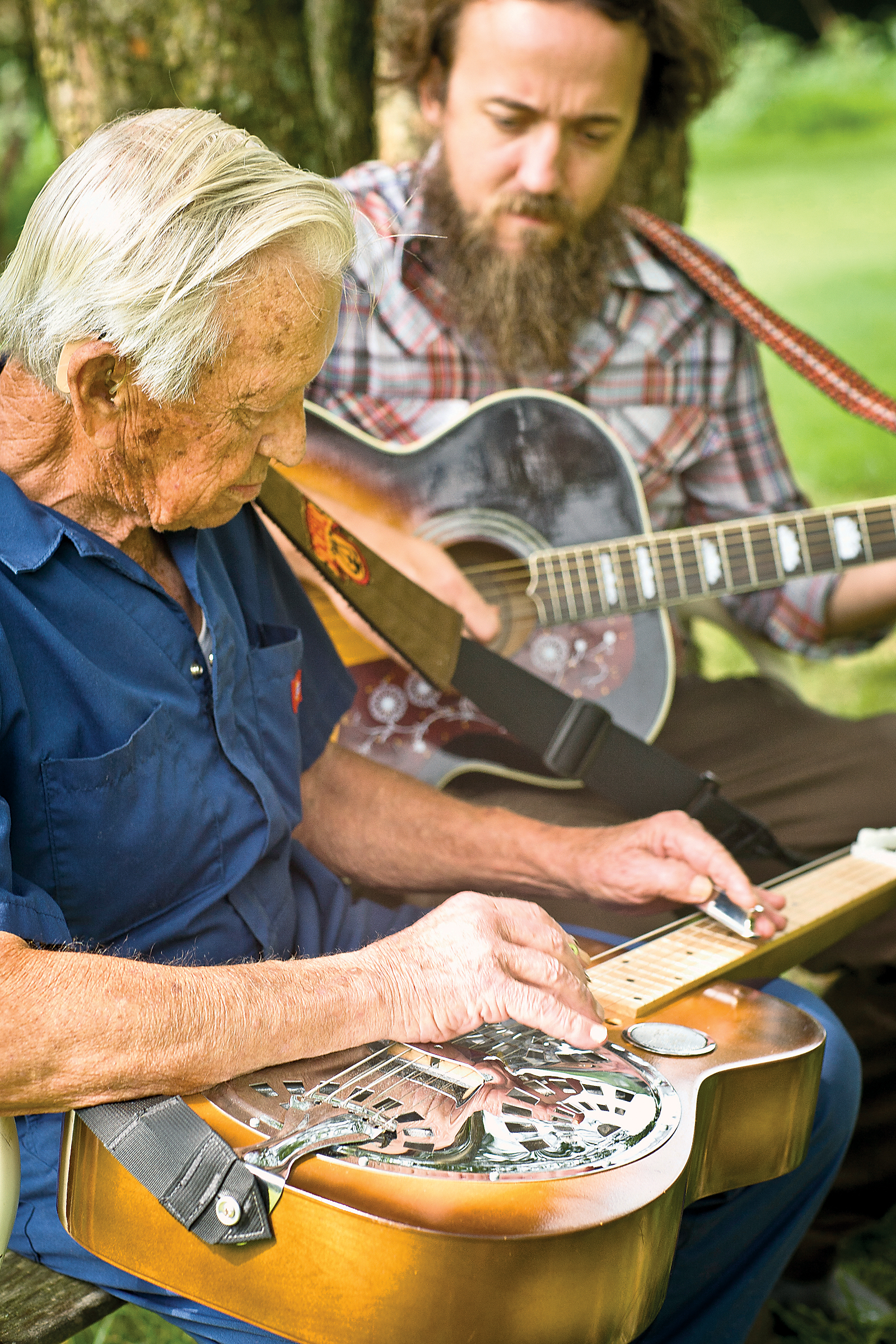Downer preserves old-time music on tape
Friday, July 1, 2011
IF YOU GOWhat: CD release party for "Slowtime Field Recordings: Volume 1, Alabama."When: July 15, 7-9 p.m.Where: CreateHere, 55 E. Main St., Suite 105.Admission: Free.Phone: 648-2195.Click here to go to Slowtime Recordings website.Q&AQ&A with Matt Downer
When Matt Downer began compiling the songs and stories of traditional, old-time musicians 13 years ago, releasing his recordings was the last thing on his mind.
Downer, then 24, had been playing old-time music since he was 16. At first, he said, his only goal was to study the technique of guitarist Stanley Baker, who visited the Sand Mountain, Ala., home of his grandfather, Wayne Heard, now 87.
"It was very, very laid-back and informal," said Downer, 36. "They'd be playing, and I would stick (a recorder) between them. They never even talked about it."
Baker died shortly after these recording sessions began. Downer said Baker's family contacted him expressing interest in the tapes, which were the only ones ever made of him performing.
Downer said the value they placed in such low-quality recordings convinced him of the need to preserve the music and stories of other traditional artists.
After more than a decade, Downer has compiled hundreds of hours of audio and video interviews of 15 artists in the region.
"At first, it was me just wanting to catch what I could of the music style ..., but when I went back the second time, I had questions I wanted to ask," he said. "It seemed like one would lead to another after I started doing it. I was kind of following the trail that way."
Last year, he began sifting through his archives to assemble material for "Slowtime Field Recordings: Volume 1 (Alabama)," a CD/DVD set produced with a CreateHere MakeWork grant that releases July 15.
Seeing his archive relegated to a handful of Rubbermaid containers in his house, Downer reached out to CreateHere last July to help him share his work with the public.
"That's not the place for them; they're a part of history," he said, adding that he plans to donate copies of the album to local libraries.
The Slowtime set features a 20-track album and more than an hour of interviews with three Sand Mountain musicians - his grandfather, Wayne Heard, Jess Moore and Cast King - and blues singer/guitarist Willie King of Old Memphis, Ala.
Of these four, Downer said only one, his grandfather, is still living, a fact he said emphasizes why he continues to do field work.
"(Death) is part of it," Downer said. "It's my hope that, through archiving this stuff, they'll live forever in a way they wouldn't otherwise.
"This way, even someone born in the 21st century will have a chance to virtually to sit in the living room and hear them talk about the music and the history."
Downer originally began his field work using a handheld tape recorder and an 8mm video camera he borrowed from his parents. With archives that stretched over numerous media formats, from cassettes and MiniDiscs to DVDs, Downer said the grant funding allowed him to make critical upgrades to his equipment.
Those upgrades have improved the quality of his work, but as with all field recordings, Downer records in homes. As a result, the performances are peppered with ambient noise - children screaming, dishes being done and doors slamming.
As a musical historian, Downer said those rough edges make the recordings more honest and more appealing.
"Well, if you want a super-clean, high-fi, digital sound recording, you can get those all day long at Walmart," he said. "In my opinion, if you go to where the music lives - where the musician lives - that's where you get the true essence of it."
Downer said he was inspired to create the Slowtime project in part by the Pine Breeze, compilations of field recordings released 1975-1981 and made by students at the Pine Breeze Center, a state residential facility in Chattanooga for emotionally disturbed teens.
Ron Williams was the evening counselor at Pine Breeze who led the students in the project. He later co-founded Citico, a local old-time string band of which Downer was a member.
Williams described the Pine Breeze project as "the best thing (he) has done in (his) life" and said he's glad to see its legacy carried on by Downer and other local field recorders.
"It was important work, and its value has lasted going on 40 years," Williams said. "I like Matt very much. He's been an asset to the preservation and continuation of this area's traditional music ... pretty much single-handedly."
Downer said he has plans to mine his archives for future volumes, including two future projects highlighting Tennessee and Georgia musicians. He said he hopes to fund those albums with money from the first Slowtime volume.
Even if the recordings don't sell, Downer said simply making them satisfies his most important goal.
"The important thing is to get it documented and recorded and preserve it," he said. "You're not going to hear (these musicians) on the radio, ... but the talent these guys have, if somebody doesn't go out and actively seek them out and try to collect their stories and music, they could be lost forever."

